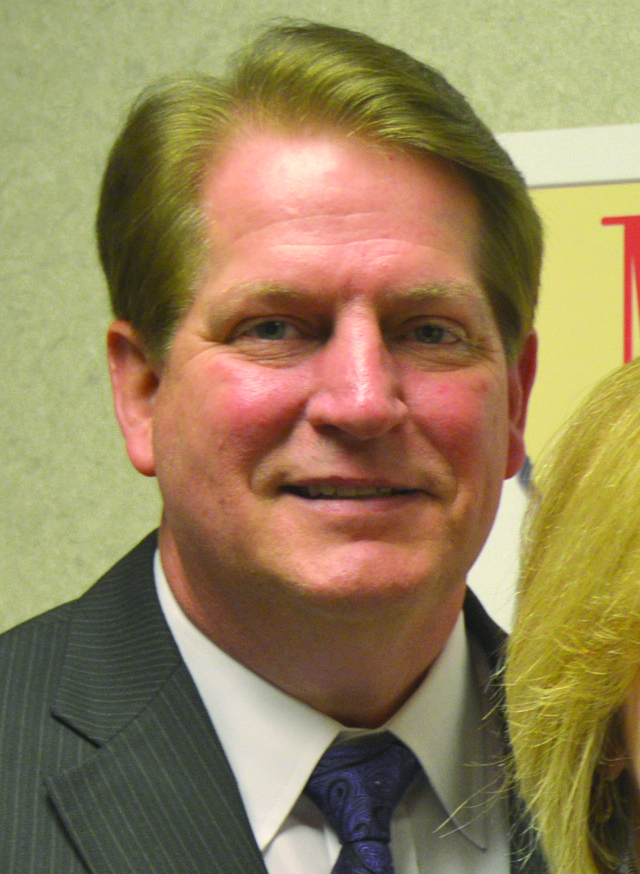By Will Hall, Message Editor
ALEXANDRIA – The mainstream media are adoring toward Bruce Jenner’s “courageous” transition to “Caitlyn;” schools are introducing curriculum teaching sexual identity is a fluid concept and not a biological construct; and, the U.S. military has announced it is studying “the policy and readiness implications of welcoming transgender persons to serve openly … with the presumption that transgender persons can serve openly without adverse impact on military effectiveness and readiness, unless and except where objective, practical impediments are identified.”
Remarkably, this push toward redefining sexual identity as “ambiguous” comes as homosexual activists just won legal recognition for gay marriage from the U.S. Supreme Court.
And, ironically, it contradicts what Associate Justice Anthony Kennedy wrote in justifying the majority decision—that “sexual orientation is both a normal expression of human sexuality and immutable” (in other words, “fixed”).
Even more incredibly, such social re-engineering is moving ahead in our country despite bodies of scientific research that conclude transsexuality is a psychiatric disease and, particularly with children, often is a transient condition that is best treated with medication and counseling.
Indeed, one of the most venerated psychiatrists in the country said policy makers and the media “are doing no favors either to the public or the transgendered by treating their confusions as a right in need of defending rather than as a mental disorder that deserves understanding, treatment and prevention.”
Paul R. McHugh’s comments were published June 2014 in the Wall Street Journal.
He is the University Distinguished Service Professor at Johns Hopkins University and served as Psychiatrist-in-Chief at the Johns Hopkins Hospital from 1975-2001.
“When children who reported transgender feelings were tracked without medical or surgical treatment at both Vanderbilt University and London’s Portman Clinic, 70 – 80 percent of them spontaneously lost those feelings,” he said. “Some 25 percent did have persisting feelings; what differentiates those individuals remains to be discerned.”
Moreover, he said individuals who have made the transition through surgery are no better off than before the procedure, referencing research by Sweden’s prestigious Karolinska Institutet (home of the committee that decides the Nobel Prize in Physiology or Medicine).
In a long-term study that followed 324 people who had sex-reassignment surgery, researchers found transgender individuals began to experience increasing mental difficulties about 10 years after having the surgery, he said. Notably, this cohort experienced a suicide mortality rate almost 20 times more than the non-transgender population.
McHugh has concluded that the high suicide rate “certainly challenges the surgery prescription” and in view of all the medical research, he believes “‘sex change’ is biologically impossible.”
A case that seems to make McHugh’s argument is the up and down life of transsexual Renée Richards.
Richards, born Richard Raskind but who had sex reassignment surgery, gained notoriety in 1977 after the New York Supreme Court ruled Richards could compete in professional tennis as a woman.
Richards became a superstar after that, not for tennis play, but for being a pioneer of sorts for the sexual revolution in America.
However, over the years Richards alternately has expressed happiness with the change, stated regrets over the choice, and made comments somewhere in between.
“I am quite happy with the way my life has turned out,” Richards told Elizabeth Fee in 2003. “I made the decision after a lot of soul searching.
In February 1999, Richards gave a qualified yes and no to the Associated Press.
“If you’re 18 or 20 and never had the kind of (advantages) I had, and you’re oriented in that direction, sure, go ahead and make right what nature didn’t. But if you’re a 45-year-old man and you’re an airline pilot and you have an ex-wife and three adolescent kids, you better get on Thorazine or Zoloft or Prozac or get locked up or do whatever it takes to keep you from being allowed to do something like this.’’
Just one month later, Richards was more emphatic on a personal level.
“If there was a drug that I could have taken that would have reduced the pressure, I would have been better off staying the way I was — a totally intact person,” Richards told Tennis Magazine. “I know deep down that I’m a second-class woman. I get a lot of inquiries from would-be transsexuals, but I don’t want anyone to hold me out as an example to follow. Today there are better choices, including medication, for dealing with the compulsion to crossdress and the depression that comes from gender confusion. As far as being fulfilled as a woman, I’m not as fulfilled as I dreamed of being. I get a lot of letters from people who are considering having this operation…and I discourage them all.”
Now, despite medical evidence and what is obvious in nature, Bruce Jenner, the Olympian named Associate Press Male Athlete of the Year in 1976, is receiving accolades and awards for having “the courage to embrace a truth that had been hidden for years” (because of a name change to “Caitlyn” and for advocacy of transsexual rights); Fairfax County students will be taught that sexuality is “a broader spectrum” than male and female; and, the U.S. military is moving to “unisex warriors.”
With all my heart, I believe Christ is King and still sits on His Throne.
But truly political correctness is the emperor that is wearing no clothes.




